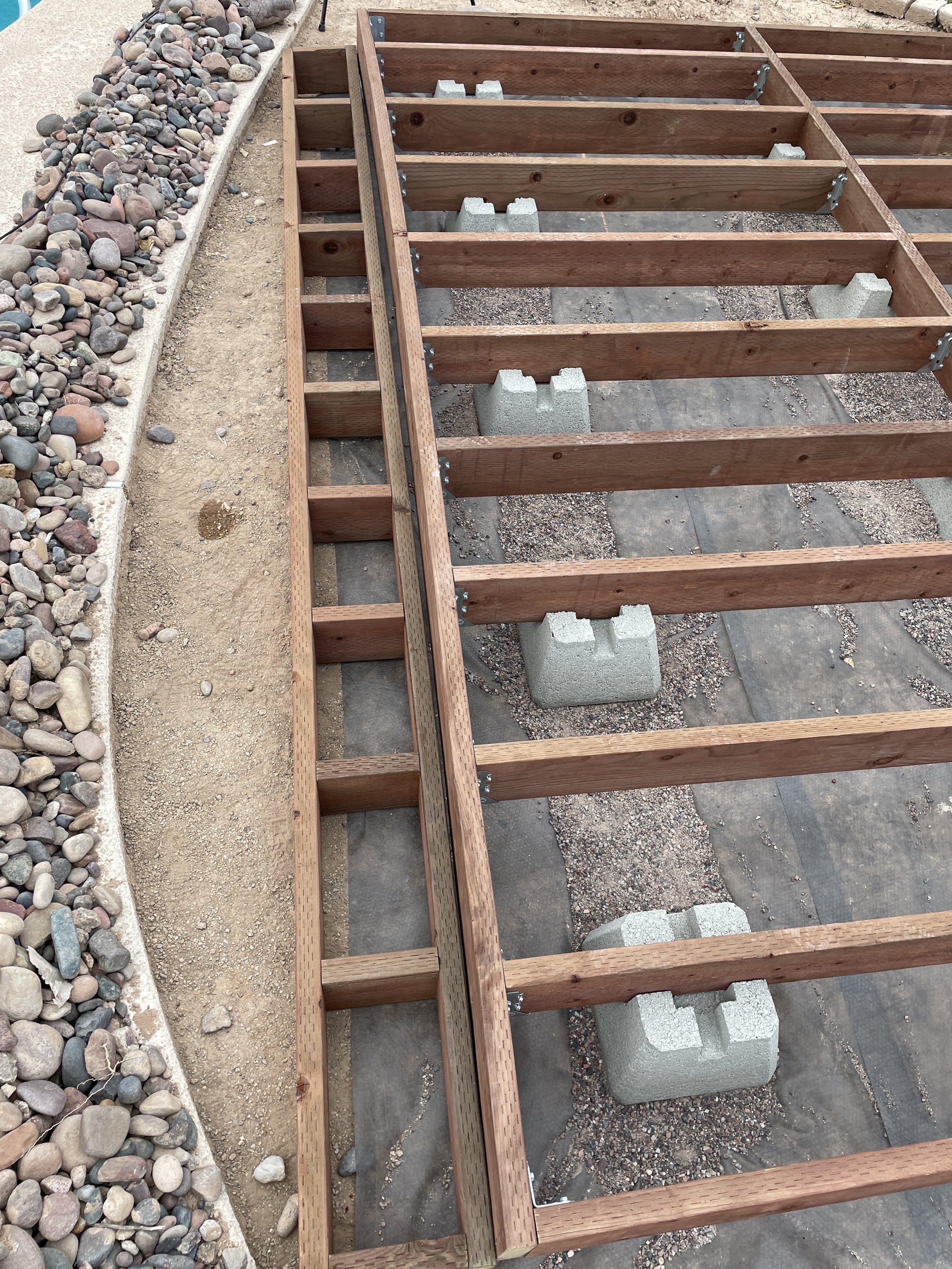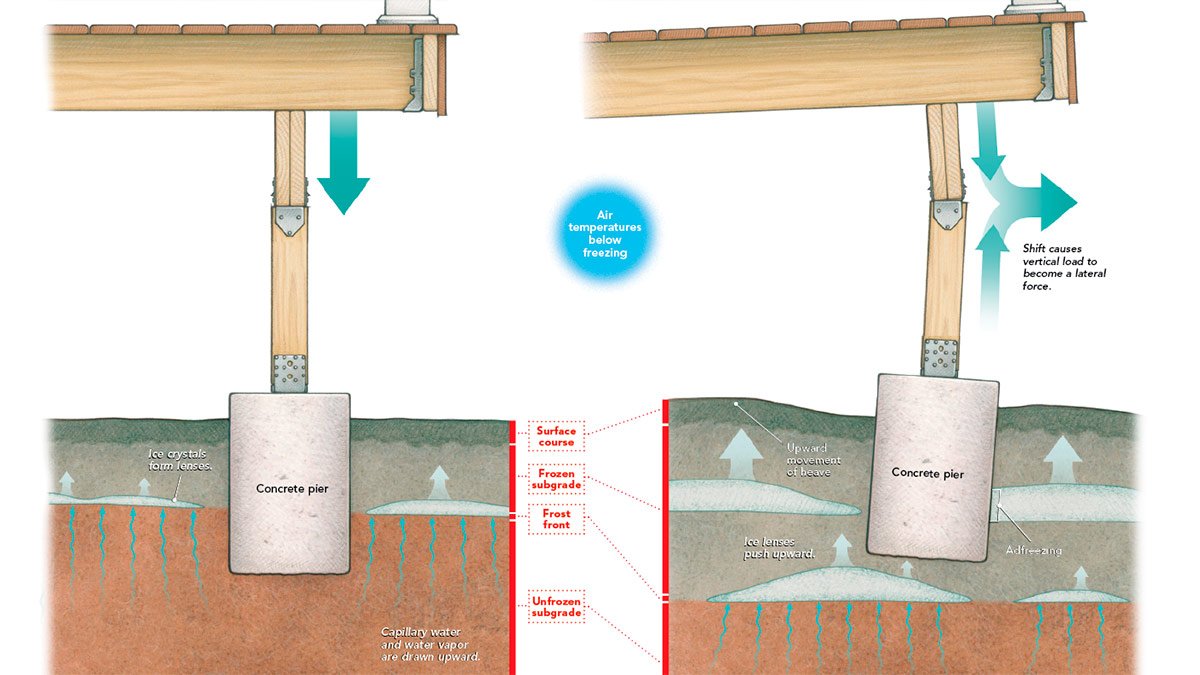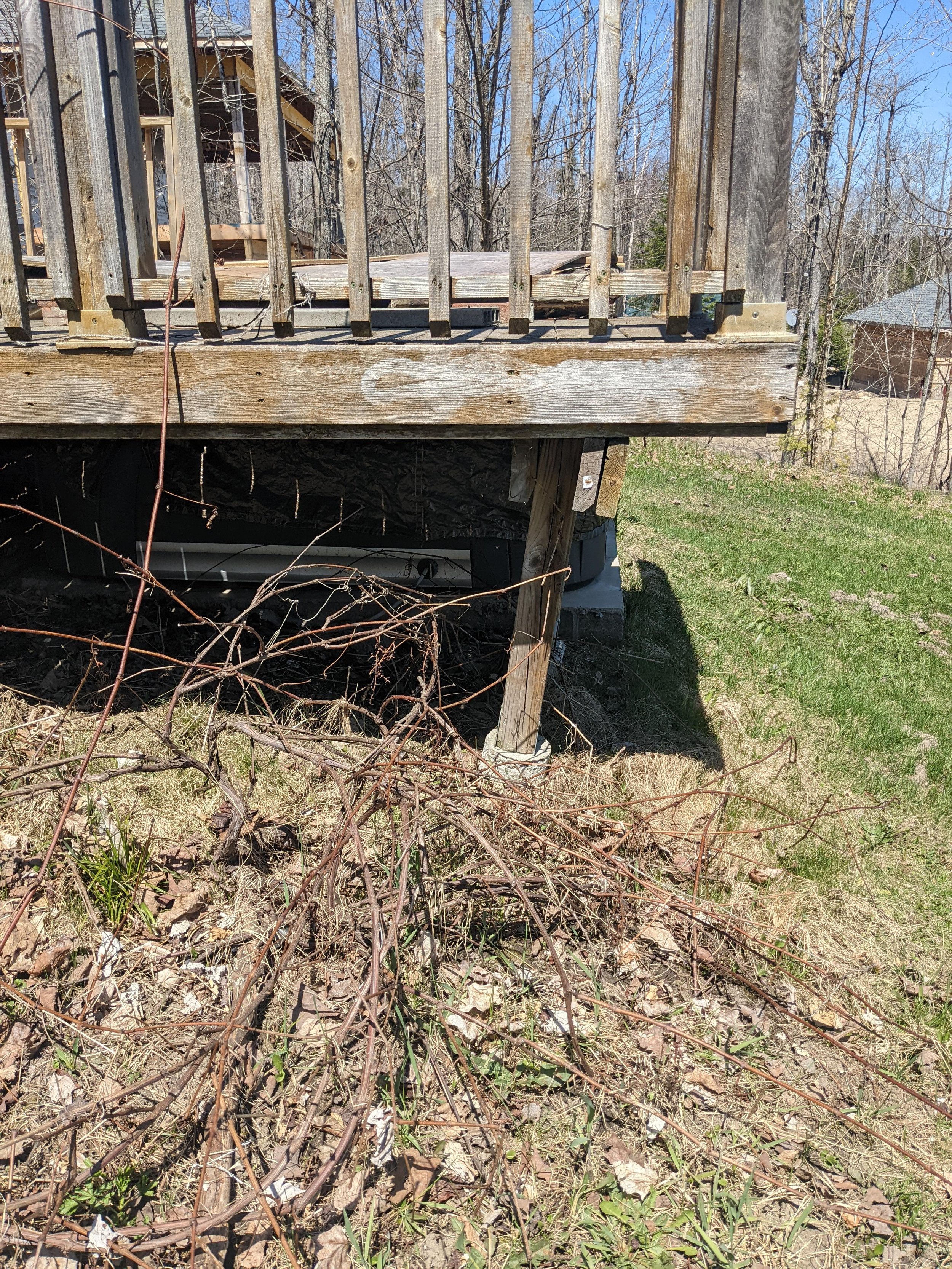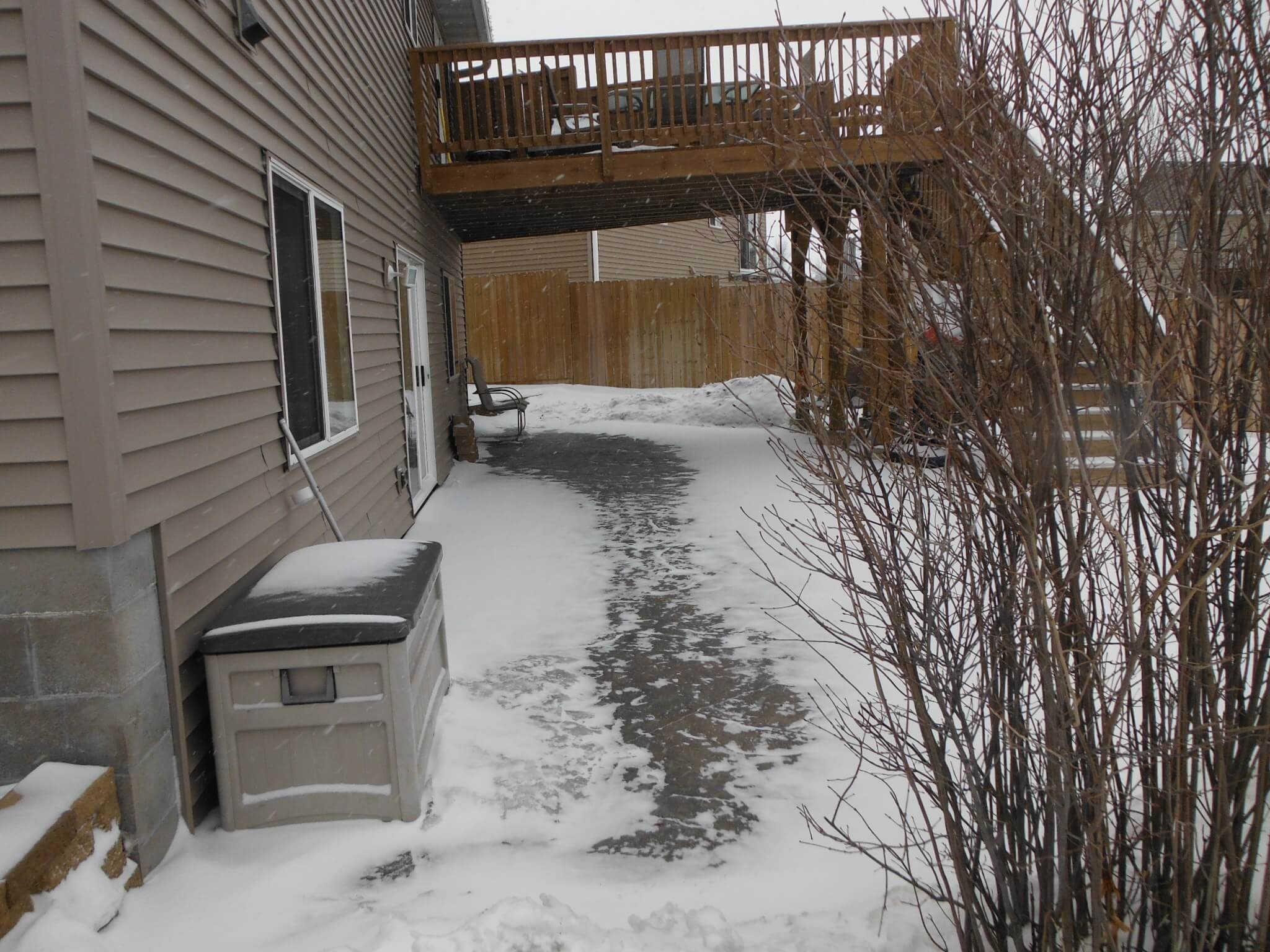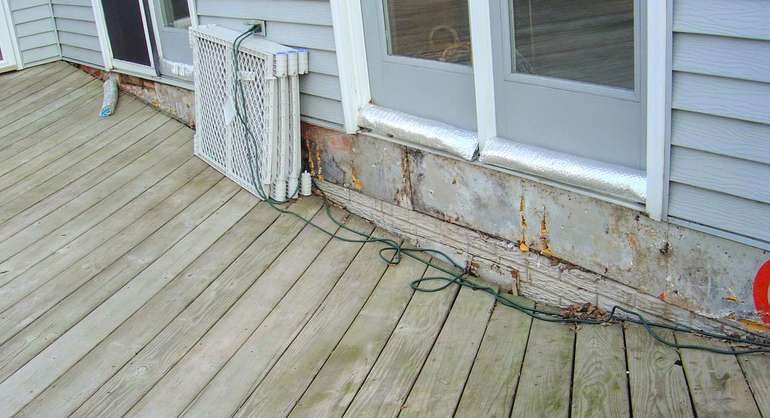Deck Blocks vs Footings
Deck blocks and concrete piers are two common options for supporting a deck. Both have their advantages and disadvantages, and choosing the right one for your project depends on several factors. This article will discuss the difference between deck blocks and footings and what option is the best for decks built in Ottawa.
Deck blocks are precast concrete blocks that are designed to be placed directly on the ground. They come in a variety of shapes and sizes, but most have a built-in socket or bracket that holds a standard 4x4 or 6x6 post. Deck blocks are relatively inexpensive and easy to install, making them a popular choice for DIY deck projects.
Concrete footings, on the other hand, consist of holes that are set into the ground and then filled with concrete. They provide a more solid and secure foundation for a deck, especially in areas with unstable soil or high winds. However, they require more time and effort to install and are typically more expensive than deck blocks.
Deck Blocks
Deck blocks are an excellent option for a floating deck foundation. Since the deck blocks do not sit below the frost line, the deck blocks may move up or down after each winter as the soil below freezes and thaws at each foundation. This is called frost heave. Frost heave occurs in floating decks, and in decks built with footings that are not deep enough to go below the frost line.
Floating Decks are great for small decks less than 200 square feet, however there are several scenarios where floating decks and deck blocks are not recommended:
Decks higher than 2 ft off the ground
Frost heave may cause your deck to become out of level, and damage the deck structure and the fence posts. The taller your deck, the worse this effect becomes.
Decks that are attached to houses
Frost heave may cause your deck to shift and rip the ledger board off of your house.
Very Large Decks
The effects of frost heave are magnified by having a large deck as foundation moves up and down. The effects are much more noticeable on large decks.
Small decks that are not attached to the house generally don’t have an issue with frost heave as they can “float” with the movement of the ground. Uneven movement is not as noticeable and will not damage your home if it is not attached to it. Examples of Damage due to frost heave is shown below.



